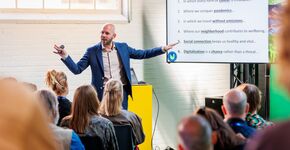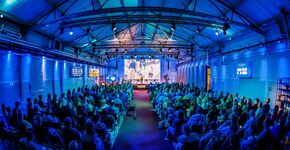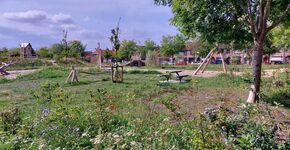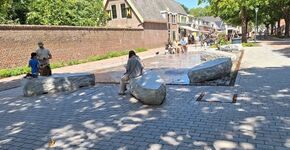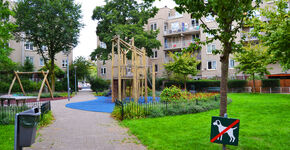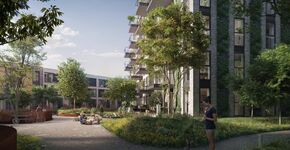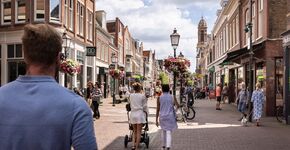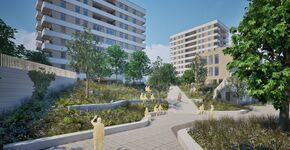Met veel plezier en trots kondigen wij David Sim aan als keynote spreker op het tweede Blue Zone Festival. David Sim is architect en was gedurende meer dan 17 jaar als creative director actief bij Gehl Architect in Kopenhagen. Zijn drive: leefbare steden. Inmiddels is David in zijn Zweedse woonplaats Lund een nieuw bureau gestart, Softer. Hij is ook auteur van de Zachte Stad. Zijn boek, dat inmiddels in 23 talen is vertaald en meest recent in het Thais en Mongools, is een meesterwerk dat gaat over stedelijke ontwikkelingen om mensen te laten bloeien. Primair. De zachte stad is een stad waar dichtheid een menselijke schaal heeft, een stad die zich inzet op sociale interactie en gemeenschapsleven. In plaats van het dagelijks leven als saai te beschouwen, zou het dagelijks leven in de zachte stad juist een genot moeten zijn.
Shifting towards a happier and healthier urban life
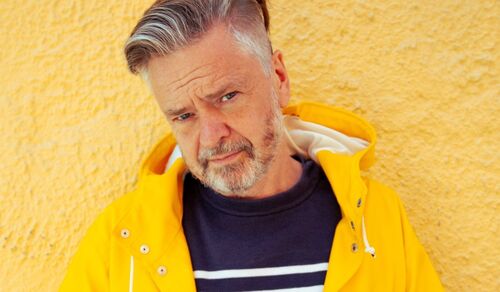
David Sim, door: Akiba Shiori
In conversation with David, he tells us that his fascination with cities and ordinary things started early. At the age of five, with his nose in the children's books such as Busy, Busy Town by Richard Scarry, his thoughts already wandered to all the things that happen in cities. He remembers that, playing with Lego and building a city which was constantly growing and changing, he told his mother who was tired of constant carpet of LEGO spread across the living room floor: "It's a town mom, it will never be finished".
David: "A city like that should actually give you space to be the best version of yourself. I have always been interested in everyday things. Super ordinary. Waiting at the bus stop, putting out the rubbish, children who need to be able to play somewhere, sleeping with an open window. What always fascinated me was that in Scotland, where I was born, the beautiful and good things were saved for special occasions, like Sunday Best. And were therefore rarely used. Certain rooms were a kind of show room that you don't go to. In Scandinavia, where I have lived and worked since my studies, it is the other way around. Every day is special and so the good and beautiful things are for every day. The clothes for every day are therefore more important than that suit that you might take out of the closet once a year or less.
It is funny that I ended up in Scandinavia because of the Lego of my youth. I remember it said 'Made in Denmark' on the boxes the Lego came in. And there were children’s stories by Tove Jansson and Astrid Lindgren, and later I became aware of design from IKEA and Marimekko and then different, more progressive politics. I imagined a more beautiful, fairer, more balanced and healthier life. Certainly when I compare that to the eighties - my youth - under Margaret Thatcher, when the UK became increasingly Americanised. In Sweden, I met wholesome students who baked their own bread and repaired their own torn clothes.
In the more than seventeen years that I worked as a creative director at Gehl Architects in Copenhagen, I spent a lot of time with Jan Gehl (the man) and learned a lot from him. Here the worlds of real estate and healthcare came together. Or urban spaces suddenly acquired a different, greater value by filling them in differently. A good example of this is Broadway in New York. Once a thoroughfare where the car was king, and now an urban space for people to linger and spend time. Before Gehl’s work, you could not sit anywhere on Times Square, it is now one of the most iconic public spaces in the world, offering a kind of holiday feeling in everyday life.
I think it is great to see that young people also understand and convey the message of Soft City. The image of a somewhat simpler and more meaningful life, and in particular, with more attention to the outdoors. Cities are challenging: how do you realize high densities on a human scale. How do you balance all the different needs e of proximity to facilities, friends, family. How do you make a city child-friendly? Greener? More sustainable? These are the questions we are working with our small team at Softer. To make a shift in urban life, towards something happier and healthier.”
Advertentie
Meer artikelen met dit thema
Aan de slag!
Waarom gezondheid begint in de fysieke leefomgeving
Soms vallen woorden precies op hun plek.
…
De fysieke leefomgeving als hefboom voor een gezonder Nederland
De Blue Zone Festival Foundation, BZFF, zet zich in voor de gezonde leefomgeving met een bijzondere focus op de…
Binnen een jaar resultaat: Gezonde Buurten werkt in Terneuzen
Wat doe je met een potje geld voor een gezondere en groenere buurt? In Lievenspolder-West in Terneuzen werd…
Nieuw dorpshart Haamstede nodigt uit tot verblijven
Waar auto’s ooit de toon zetten, klopt nu een dorpshart dat mensen vasthoudt. Met een lange adem, een breed…
Onderzoek Haagse Hogeschool naar gezonde inrichting fysieke leefomgeving
In kwetsbare wijken lopen gezondheidsproblemen vaker op, mede door een fysieke leefomgeving die niet uitnodigt…
Onderzoek naar gezond en gelukkig samenleven in Cartesius
In de Utrechtse wijk Cartesius, ontwikkeld op basis van de blue zone-principes, start binnenkort een vierjarig…
Behoefte aan woonomgevingen die zowel fysiek als sociaal veerkrachtig zijn
De TU Delft pleit voor een herziening van hoe wijken worden ontworpen. In een tijd van toenemende…
Een toekomstbestendige omgeving is gezond
Het creëren van een gezonde omgeving, dat is de rode draad in het werk van architectenbureau Oostwest. En dat…
